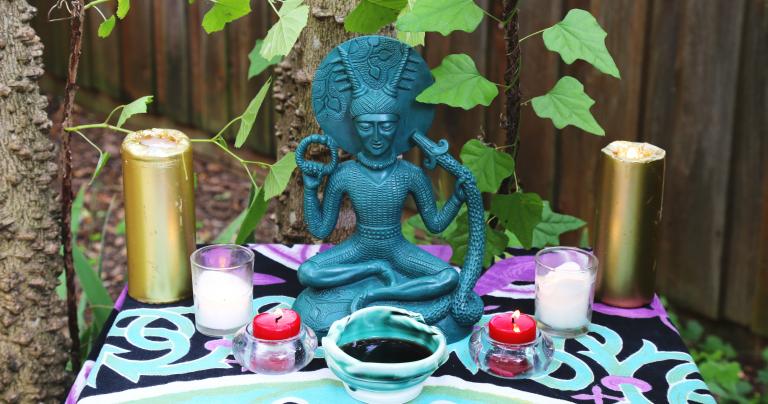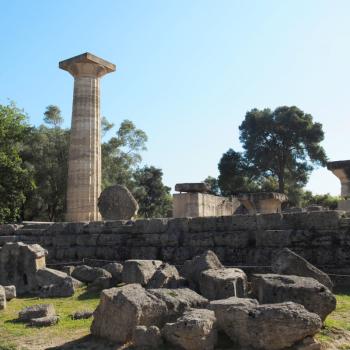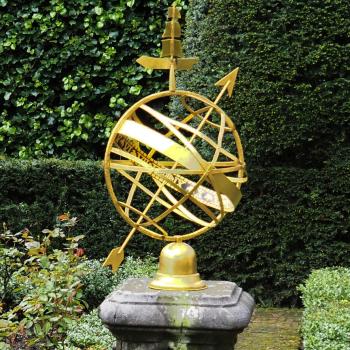Jason Mankey has a very good post this week titled Worship Is More Than Words & Offerings. He does a good job of explaining how worship does not mean self-debasement, and then asks an interesting question:
At what point does admiration become worship? Does one have to believe in a higher power to worship it? In other words, when does worship become worship?
This is important when we look back at the appearances of Pagan Gods in art, music, and literature during a time when Europe was considered “Christendom” and when practicing any religion other than Christianity was difficult and in many cases, a risk to life.
What we learn there is informative as we look at the slow but steady rise of Paganism and polytheism in our culture, which is still predominantly Christian. The old Gods never really went away, and our worship – in many forms – helps restore Them to a place of prominence and honor.
Worship is proclaiming what is most worthy
I apologize if you’ve heard me say this before a time or ten, but it’s one of those things I have to talk about on a regular basis. So many people have the wrong idea about worship.
“Worship” comes from the Old English word weorthscipe meaning worthiness and respect – to worship is to declare something or someone worthy of honor. At its core, worship is an expression of respect and a statement of worth. When we worship the Gods we are affirming that They are worthy of our honor and respect.
Prayers, hymns, and offerings are one way to do that. But that’s not the only way to worship.
Worship draws us closer to the Gods
When we declare that Cernunnos or the Morrigan or Athena is worthy of honor and respect, we necessarily focus on the attributes that make Them worthy: growth and nurturing, strength and tenacity, wisdom and courage. We focus on Their stories that tell us how They embody and express their virtues and values, and that remind us that They are whole persons, not merely personifications.
Contemplating the Gods draws us closer to the Gods. It helps us incorporate Their attributes into our lives and makes us more God-like. That in turn strengthens the relationships between us and the Gods, which helps us understand Them better, which helps us become more like Them.
Good, honest, authentic worship is a virtuous circle.
The Gods never really went away
Plutarch was wrong: the Great God Pan never died. The Gods of the Greeks, Romans, Celts, and other cultures may have faded into the background when their formal worship ended, but they never really went away. They remained present in art and literature, and in the land itself.
They also remained in the physical and spiritual descendants of the people who actively worshipped Them in earlier times. Jason tells about a tour guide who is a member of the Greek Orthodox Church but who also “uttered prayers to Athena now and then.” Egypt is a Muslim country, but they still put Horus on their airplanes, because Horus has always been a part of Egypt.
Because the Gods never went away, They were always there when people thought of Them, and especially when people thought about worshipping Them.

Many Renaissance artists and Romantic poets were aspirationally Pagan
In his excellent book on Pagan philosophy The Earth, The Gods and The Soul, Brendan Myers quotes historian Jocelyn Godwin, who said:
I do not suppose that anyone in the fifteenth or sixteenth centuries was a pagan, in the sense of rejecting Christianity and adopting a pre-Christian religion… What I do suggest is that some people during this period ‘dreamed’ of being pagans. In their waking life they accepted the absurdities acknowledged as the essence and credenda of Christianity, all the while nurturing a longing for the world of antiquity and a secret affinity for the divinities of that world.
Can you worship a God whose existence you don’t actively affirm? This isn’t an ecclesiastical court: we’re neither trying someone for Christian heresy nor testing them for Pagan orthodoxy. What artists and writers believed isn’t important to us. Their art and writings declared that the old Gods are worthy of honor and respect, and that’s close enough to worship for me.
More importantly, it was close enough to worship to assist in the return of the Gods.
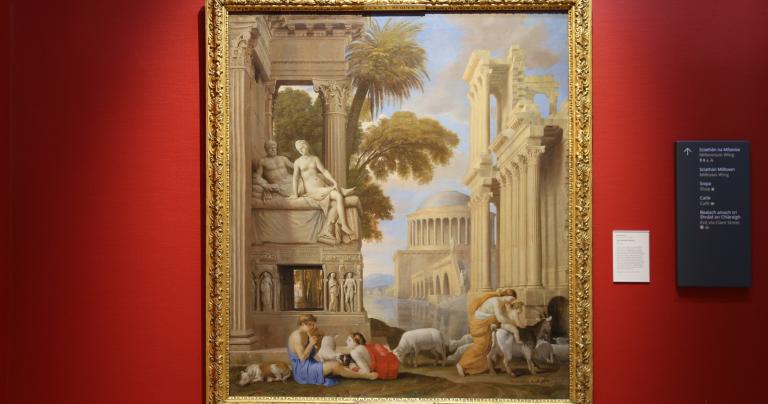
Worship advances the Gods
The Neoplatonists argued (and they still do) that the Gods are perfect and need nothing, therefore our worship does not benefit Them. That may – or may not – be true. But what is clearly true is that humans worshipping Gods makes those Gods more visible in human society.
At first it’s just an artist re-creating a scene from Greek mythology. Then it’s someone viewing that art, and thinking about a Goddess they had heard about but never really thought about. Then it’s someone whispering a prayer to Athena because it seems like Jesus isn’t listening.
Eventually you’ve got Percy Shelley raising a turf-altar to Pan and calling it “the rites of the true religion” in 1821.
Again, this isn’t an ecclesiastical court and we need not decide whether Shelley actually worshipped Pan… though it certainly looks that way to me. But because Shelley and others like him wrote about the old Gods, eventually people begin worshipping Them in ways that are undeniably Pagan, undeniably polytheist, and undeniably religious.
And that bring us to where we are today.
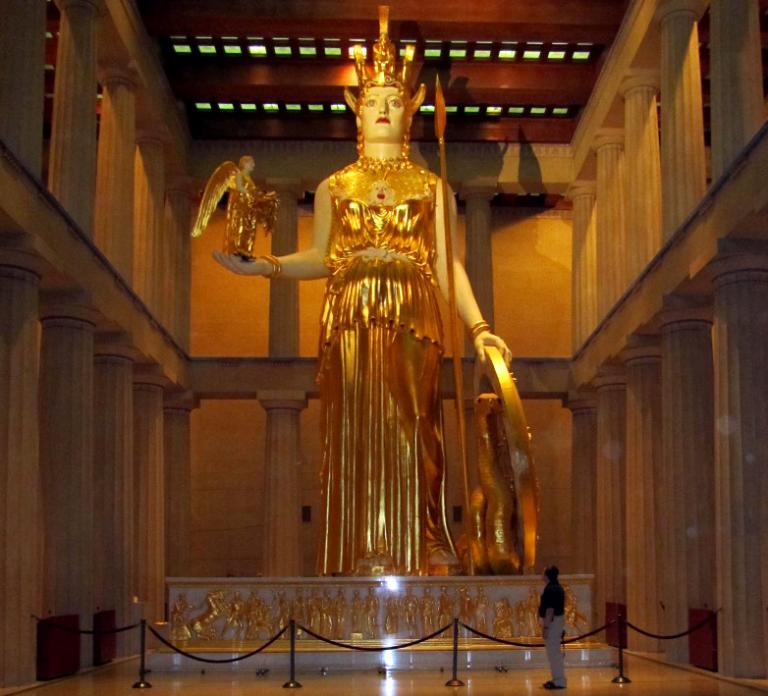
Our worship helps make the Gods more visible for the next generation of Pagans
On one hand, worship is something deeply personal. I worship Cernunnos, Danu, the Morrigan, and others because I truly believe They are worthy of honor and respect, and because I want to strengthen and deepen my relationships with Them. I want to become more like Them.
That’s what I get out of worship. But when I talk about worship, write about worship, and share pictures of worship, I’m doing the same things that Jean Lemaire and Percy Shelley did: I’m making the Gods more visible in the world.
And you are too. Even if your worship is a private thing, it brings you closer to your Gods and that will cause you to bring Their values and virtues into the world, to one extent or another.
The next generation of Pagans and polytheists won’t have to worry about whether building an altar to Pan is “the true religion” or not. There are enough people who practice these religions, and our society is sufficiently plural – despite the very loud Christians and almost-as-loud atheists – that the worship of the many Gods will be seen as one legitimate alternative among many.
I used to think the future would be Pagan and polytheist. I’m less certain now, at least over the next hundred years or so. But I am certain that the worship of the many Gods never really ended, it has been growing for over 500 years, and it will continue to grow in the future.


